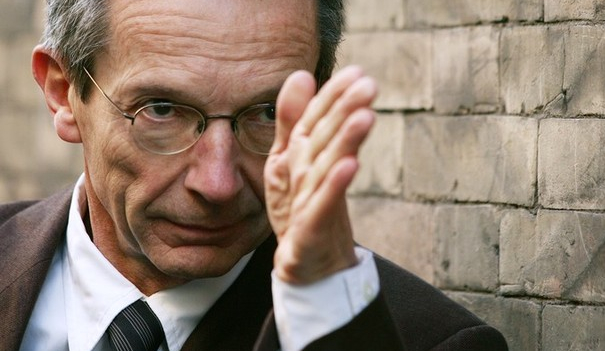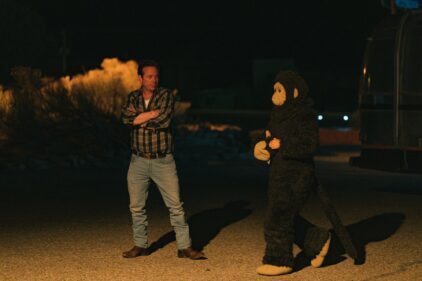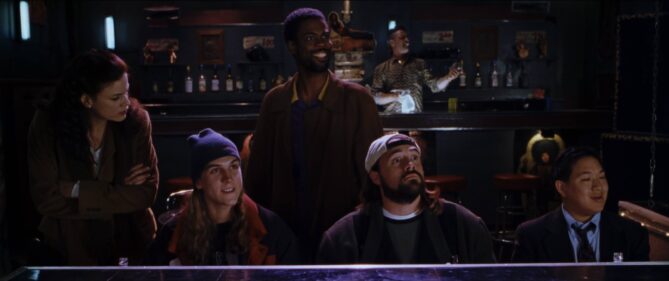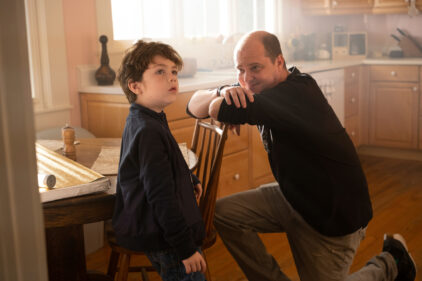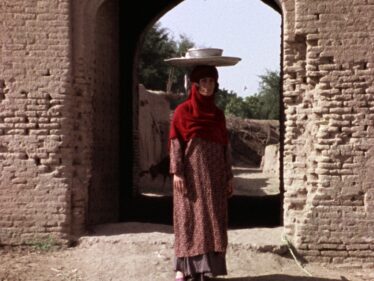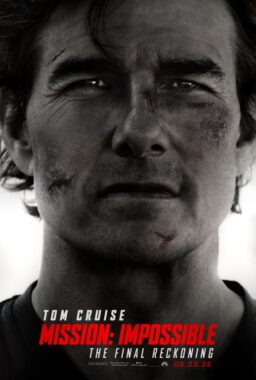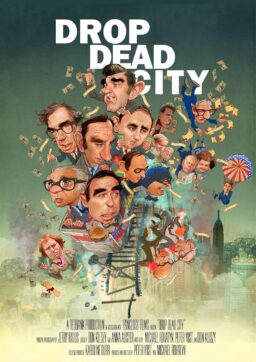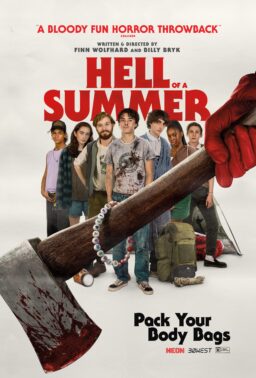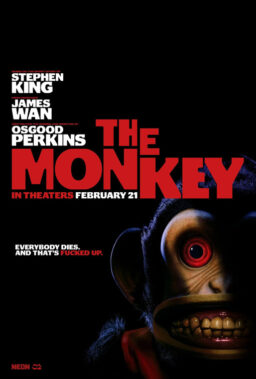I would like to urge you gently toward those shelves in your friendly video store that hold the titles of Patrice Leconte. If your store does not carry his titles, then it is not your friend.
Patrice Leconte, from France, at 55 has made 23 films, of which I have been able to see: “Monsieur Hire,” “The Hairdresser's Husband,” “Ridicule,” “The Widow of Saint-Pierre,” “The Girl on the Bridge,” and now “The Man on the Train.” Two of those films have been on my list of the year’s 10 best, three more could have been, and the sixth will be.
He is the kind of man who always seems about to tell you a joke. But he is not a comedian. His films often make you laugh. But they are not comedies. They cannot be classified according to any known system of categories, which is why they keep you delighted and curious. If they have a common element, it is serendipity.
Consider “The Man on the Train.” It involves a serendipitous meeting between a retired school teacher (Jean Rochefort) and a bank robber with three guns in his luggage (Johnny Hallyday). These men are no longer young. The bank robber gets off the train in a French village on a chilly November day, finds himself talking to the teacher, and soon is the teacher’s guest. They talk and drink and smoke and play backgammon and are tactful about respecting each other’s privacy. At 10 a.m. on Saturday, the teacher is scheduled for triple bypass, and the robber is scheduled to hold up a bank.
There is genius in the film’s casting. Rochefort, tall and slender, looks aristocratic. Hallyday in his black leather jacket looks like an outlaw rocker, as indeed he is–“the French Elvis,” he’s always called. To put these two men in the same film would seem unlikely, but Leconte did, again because of serendipity.”
“I don’t think that a filmmaker is manipulating puppets,” Leconte told me last September at the Toronto Film Festival. “On the contrary, I believe a filmmaker is more like a chemist. You mix elements that have nothing to do with each other and you see what will happen. The starting point for ‘The Man on the Train’ was the meeting of these two actors. Put in a few drops of Johnny Hallyday, a few drops of Jean Rochefort and look what happens. Sometimes it blows up in your face.”
What is so special in France about Johnny Hallyday? I asked.”You could also ask why do Americans like Elvis so much? What I think is that he has such generosity and such strength that he is the number one and has been number one for 40 years. When you have been number one for so long, there’s something very magical.”
“Was it easy to persuade him to make this film?
“It was so easy, that it was he who came to get me. One day four or five years ago, when I had never met him, he was at the Cesars, which are the same thing as the Oscars. He said very nice things about my work. He finished by putting his hand on my shoulder and said, ‘One day I would like to be filmed by you.’
“I thought the formula was very touching, even somewhat feminine, because usually a guy like Johnny Hallyday would say, ‘It would be nice to do a film together,’ but he said, ‘I would like to be filmed by you.’ And that’s how it happened. It was easy to convince him since it was his idea.”
We were sitting in a restaurant, crowded at lunchtime, and had already talked about five of Leconte’s other films, and I was enormously pleased because I had long been intrigued by this man. He fit into no category, and yet his films were always so elegant, with such a strange mixture of sadness and high spirits.
I love the ending of “The Man on the Train,” I told him, although I will not spoil it for you. What Leconte says below may seem to be revealing something, but if you see the movie you will find that it doesn’t even touch what happens.
“In the first version of the script,” he said, “they died at the same second and that was it. But it was horrifying, much too sad. I wanted the movie to end on a positive note, in a poetic way, fantastic way, to have an ending which was imagined by no one.”
In the film, each man is attracted to the life of the other man. One day when a pupil of Rochefort’s comes to be tutored and the old teacher is not there, the bank robber puts on a straight face and tells the kid, “Your lesson is with me today.” And he tutors him on a novel by Balzac which he has not read.
“I especially like that scene,” Leconte said, “because Hallyday plays it without looking for any ironic commentary on the situation.” Actually Johnny Hallyday might have made a good teacher.
“He makes it seem that way.”
In “The Man on the Train,” Rochefort goes into a barber shop and asks for a short haircut (“Halfway between just out of prison and world-class soccer star,” he tells the barber). Leconte’s “The Hairdresser’s Husband” starred Rochefort as a man with a fetish for women cutting hair; he marries a hairdresser, buys a shop for her, and sits in it happily all day.
In “The Man on the Train,” I said, I was happy to see Jean Rochefort get a haircut.
“The scene is a direct reference to ‘The Hairdresser’s Husband.’ And the actor who is playing the hairdresser was the man who gave his hair salon to the hairdresser in that movie. I thought since I’m making a reference anyway I might as well do it all the way.”
Was “The Hairdresser’s Husband” a little bit autobiographical?
“A little bit, yes. I’ve never wanted to marry a hairdresser, but it was autobiographical on an emotional level. It’s an autobiography on the level of confusion and emotion.”
Strange, that two of the French directors I value the most, Bertrand Tavernier and Patrice Leconte, are not often highly praised by the French critics. He is a member of the generation after the New Wave (the Next Wave?). I asked him how those great figures affected him.
“Well, Godard has become somebody who’s very strange today. But he brought so much to film in the beginning. Godard was the most important element in our desire to do cinema. Because before the New Wave, when you thought of cinema, you were under the impression that films were 300 kilometers away, that you could never do it. But when I saw his ‘Breathless,’ all of a sudden cinema came closer to me and I told myself I could do this.”
These days, I said, the digital revolution has given young directors access to filmmaking at a much smaller expense.
“Yes, but not always with the best results. For me the worst example is ‘Dancer in the Dark’.” That would be the digital video quasi-musical by Lars von Trier, founder of the Dogma movement. “For me, when he’s filming with 50 or 100 cameras, that is the negation of cinema. The point of directing is to have only one camera, but at the right place. And the jury from the Cannes Festival that year, probably because they don’t know what cinema is, gave them the Palme d’Or. It made me crazy. You don’t have to write this down. But you can, because I really think it.”
He sighed. “But the New Wave. Well, I didn’t know Truffaut at all. I never met him, because he died too early probably. One of the things that I loved most about Truffaut was that he loved movies. And I would like that on my tomb: This man loved to make movies. ” He smiled. “Hopefully, the later the better.”

